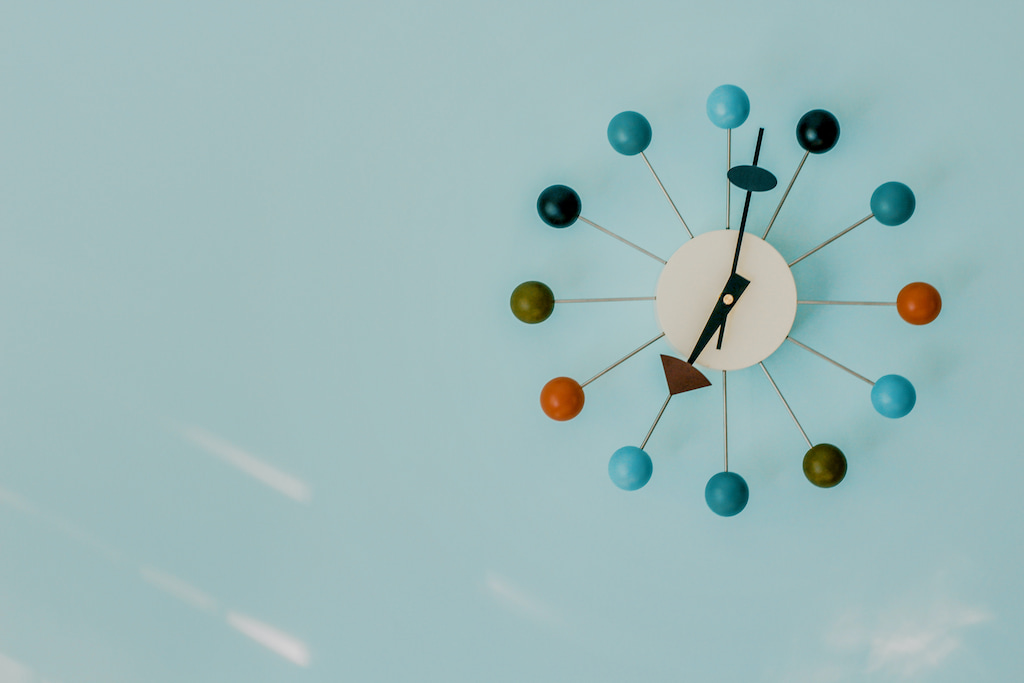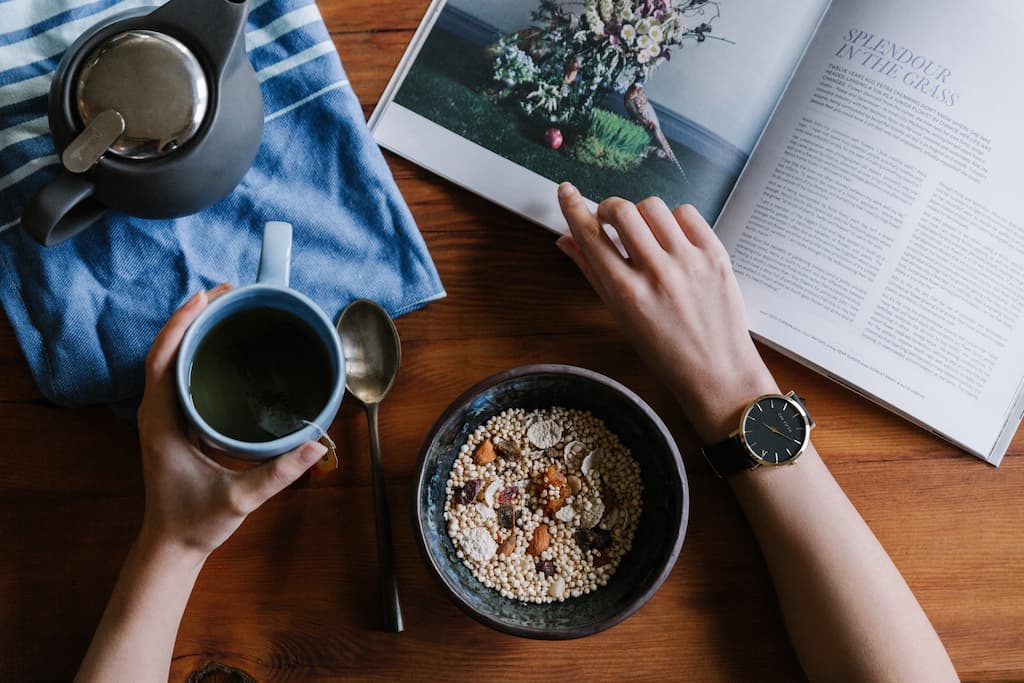Let’s Talk About Routines…

Content
“Feeling stuck in a routine”- a phrase often stumbled upon and probably heard by many of us multiple times already. Have you ever felt this way or are feeling this way right now? I definitely have and while those feelings can be challenging, I’ve also discovered that routines can be good, helping us to find balance. A routine can be our safety net, a simple checklist, guiding us as we move through our days. I would suggest that the very thing that makes us feel stuck in our routine may not actually be the concept of a routine itself, but rather how it’s designed and implemented on a moment-to-moment basis.

Reflection & Change
Usually, I’d discuss different aspects around the subject of routine in the beginning and then end with some recommendations. But these two tips are just too important not to mention now before we dive deeper.
Whenever we feel stuck in any life situation, wanting to move forward, we can return to two words: Reflection and change.
Reflection
Carving out some time for reflection allows us to pause and take a deep breath for a few moments out of our usual day-to-day life. Some questions to consider when you’re reflecting: Which aspects of your routine make you feel stuck? What’s been particularly unsatisfying? Try to identify it. Then ask yourself: What can I do about it? Maybe it’s moving a bit slower. Or, allowing yourself to feel all aspects of your being for just a few heartbeats. Perhaps it’s meeting yourself from a place of honesty. A short period of time can have a powerful impact. Maybe you pause to take a sip of your favorite beverage, or take a brief walk. During this reflection, you can take time to map out your daily routine and critically, as well as honestly, ask yourself what you like and do not like about it.
Change
Are you willing to change your routine? And even further, are you willing to accept that doing so may require you to step out of your comfort zone to try new things? In order to do this, we first need to be aware of the boundaries of our own comfort zones and how much we may or may not be staying within them. We need to ask ourselves whether we are willing to make the changes we’ve identified in our reflection time and do the work necessary to build a new routine.
The Challenging Side

Routines can be especially difficult if they’re somewhat restricted by our environment or situation and we have little power to alter them. For example, perhaps you have very strict work hours or inflexible deadlines given to you by an employer. Or, what about those routines that are dependent on one another? If you have children, family members, or a partner that you co-create your routine with, changing your day according to your personal preference may seem impossible.
Remember, you don’t have to change everything. Consider this:
Schedule your days in a way where there’s some room for you to do something spontaneously. Create some flexibility and room for creativity throughout the day, even if that’s only possible for a short period. Fifteen minutes or half an hour can be enough.
Rather than changing everything, is there something you’d like to add to your routine that would feel like a welcome shift? For instance, a quiet morning walk, trying out a new activity (e.g. join a club, a gym, dancing classes, online courses)? Coffee in a lovely bakery or café before you go to work or on your way home? Getting more involved in community work? What else can you think of?
Now, let’s look at the opposite situation in which you’re in a position where you can freely choose how to create your routine with no one standing between you and your decisions. Ask yourself this: What if you feel stuck in a routine because you have chosen to fill your days with things you tell yourself you have to do but don’t actually want to do? If so, I’d like to suggest a few simple guiding questions:
Meet yourself with honesty: Who are you? Or, who do you want to grow into? What is it that you really want to do? What brings you joy? And, how can you get there?
Look at the different areas of your life: What kind of work are you doing and why? How are you filling your spare time and why? Try to identify these activities and then see how you can reorganize your day according to what’s most meaningful to you.
If you’re in need of some inspiration and want to see how others are organizing their days, you can talk about it with friends, colleagues, family members- or anyone else with whom you feel comfortable. Or, you might want to read about the day-to-day life of well-known people in different sectors, such as business leaders, athletes, artists, politicians, and historical figures. Seek inspiration and then see what works best for you and your current life circumstances.
Habit, Routine, & Ritual: What’s the difference?

As I was preparing this article I found myself contemplating the difference between habits, rituals, and routines. Is there any difference? If so, what is it?
According to Le Cunff the difference lies between the level of energy and consciousness they require. Habits seem to be those things we automatically do without any big intention or effort behind it. Which habits do you have? Are they serving you? How mindful are you, as you carry them out? For example, do you think about the first cup of coffee in the morning, going to work or school, brushing your teeth, or eating a meal? A routine, however, is chosen more deliberately. There’s a higher level of consciousness and energy required for carrying it out regularly. That may mean something like a weekly exercise class or laundry or grocery shopping. Rituals are chosen very intentionally with a clear purpose and a great deal of effort in creating them. A ritual may just be preparing a wonderful meal for friends or family members once every week, a birthday feast, or a celebration of the first warm day of the year with a big barbeque party.
The question is are all three – habit, routine, and ritual – closely interconnected? Are habits and rituals not part of a routine? Can they not inspire each other? What do your habits and rituals look like? And, how do they influence your routine?
The Perks of Having a Routine
Interestingly, I have met people who’ve lived years with more or less the same routine.
Fixed working hours from morning till afternoon, scheduled gym sessions, yoga, Pilates, or Zumba classes in the evening, the weekends reserved for a glass of wine and some dancing with friends, a romantic night out, or an afternoon with coffee and cake with relatives. I’ve known people with this kind of balance, with the same amount allotted for work and leisure every week.
As it appears, the magic rests in the individual’s approach to life. Whereas many of those people do find themselves complaining sometimes about needing to wake up again at six o’clock in the morning, they sweeten what could be an otherwise sour experience by allowing themselves openness for the day ahead. Keep the mind open rather than fixed. Even if that just means deciding spontaneously whether dinner’s a home-cooked meal, or ordering takeout, or eating out at a lovely bistro or restaurant. Be a bit spontaneous and flexible – allowing the unpredictable to enter the predictability of the routine. Who knows, you might just stumble across a new thought or encounter a stranger who becomes a good friend.
Find what brings you joy. By doing so, we’re more motivated to allow ourselves space to mix up our routines a little, boosting our positivity and giving ourselves room to flourish to our fullest potential.
Translator: Ebru Peközer

